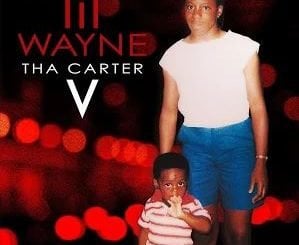Chapter Ten by Kendrick Lamar Lyrics Meaning – An Exploration of Identity and the 80s Generation
Lyrics
Babies from 80s don’t know no better
Don’t nothing go better with ignorance
But the belligerent kids that we living with
Some of them masculine, some of them feminine
‘Member the universe used to be innocent
Now they just look at us crazy like immigrants
Everyday that I wake up, I’ma sin again
I’m not a citizen
I’m just a nigga from Section.80
Show of hands, how many been taking notes?
Good
Leave everything on the table now
On the real
This is your generation
Show, show your pain
Chapter Ten, a succinct yet profound interlude from Kendrick Lamar’s critical darling, ‘Section.80’, offers a piercing gaze into the complexities of generational identity, social struggles, and self-awareness. Through its brief but dense narration, Lamar weaves an expansive commentary condensed into a mere minute of powerful reflections that resonate far beyond the track’s runtime.
Anchoring the album’s narrative, ‘Chapter Ten’ serves as a thematic cornerstone, encapsulating the spirits and tribulations of the 1980s babies. With its poignant, stripped-back production, the track guides us on a voyage through time, peering into the nuanced rift between innocence lost and societal roles imposed. Lamar, ever the poet, lays down a raw manifesto, imploring listeners to recognize the mirrored lives unfurling before them.
The Echoes of the 80s: Unwrapping Generational Echoes
Lamar’s choice of a title, ‘Chapter Ten,’ isn’t arbitrary; it serves as a microcosm capturing the essence of the album’s generation-focused narrative. By invoking the 80s, Lamar spotlights a cohort birthed in an era of radical shifts – politically, socially, and culturally. These are the children of Reaganomics, the War on Drugs, and the genesis of hip hop – each factor shaping identities in starkly different ways.
These lines aren’t just a reflection; they cut through the facade of nostalgia to unveil a reality marred by ignorance and systemic oppression. ‘Babies from 80s don’t know no better’ isn’t an indictment of the generation’s naivety; rather, it reflects a lack of guidance and understanding from those before, leaving them to navigate a world where innocence once existed but now seems a fable from a universe long forgotten.
Ignorance and Innocence: The Dichotomy Within
‘Don’t nothing go better with ignorance’. In this striking line, Lamar ties the absence of knowledge to a comfort in the unknown, a symbiotic relationship with not just innocence but also the bliss that comes with being uninformed. Ignorance here is a blanket woven by systemic failings, a protective layer from a harsher truth awaiting those who dare to confront it.
This innocence is not merely a lack of guilt but a state of once having been unscathed by life’s brutal realities. ‘Remember the universe used to be innocent’ Lamar mourns not only a personal loss of innocence but a collective one – a time when these now-adults were untouched by the bitterness of a prejudiced society, a time swiftly usurped by a coming-of-age dictated by racial and social injustices.
The Profound Revelation of Self in ‘I’m Not a Citizen’
One of the song’s most searing confessions is contained in the line ‘I’m not a citizen, I’m just a nigga from Section.80’. Lamar breaks down his perceived identity within the societal construct, stripping away the facade of belonging to lay bare the otherness felt by many African Americans. The term ‘citizen’ implies full inclusion, rights, and recognition within a nation – something Lamar, and by extension his generation, feels alienated from.
Section.80, both the title of the album and a representation of a marginalized section of society, becomes the branding of an entire demographic. It’s not just a physical location but a mental state of disenfranchisement, where the expected societal roles clash with the harsher lived realities of those relegated to its margins.
Deciphering the Call to Arms in ‘Show, Show Your Pain’
Kendrick doesn’t merely narrate; he commands. ‘Show of hands, how many been taking notes? Good. Leave everything on the table now,’ he challenges his listeners to engage actively with the lessons laid bare throughout the album. This is more than music; this is an educational doctrine for the disaffected, urging a generation to embrace their narrative and learn from their collective past.
In an act of vulnerability and defiance, Lamar’s closing invocation ‘Show, show your pain,’ serves as a rallying cry for authenticity and emotional honesty. It dismantles the stigma around expressing suffering and insists on the power of shared experiences as a source of both healing and strength for a community long silenced and suppressed.
Unlocking the Song’s Hidden Meaning: A Tapestry of Social Commentary
On the surface, ‘Chapter Ten’ is a succinct intermission in a larger body of work, but digging deeper unveils its role as a multifaceted critique dressed in simplicity. Kendrick has artfully condensed the visceral complexity of an era, a community, and individual identity into a one-minute masterpiece that unpacks itself with each listen.
The hidden meaning lies within the strategic placement of personal pain against the backdrop of generational trauma. It’s a delicate balance of storytelling that speaks volumes of Lamar’s ability to encapsulate broad societal woes within the frame of individual narrative threads, making ‘Chapter Ten’ not just a piece of music but a poignant historical document for the voices it embodies.








